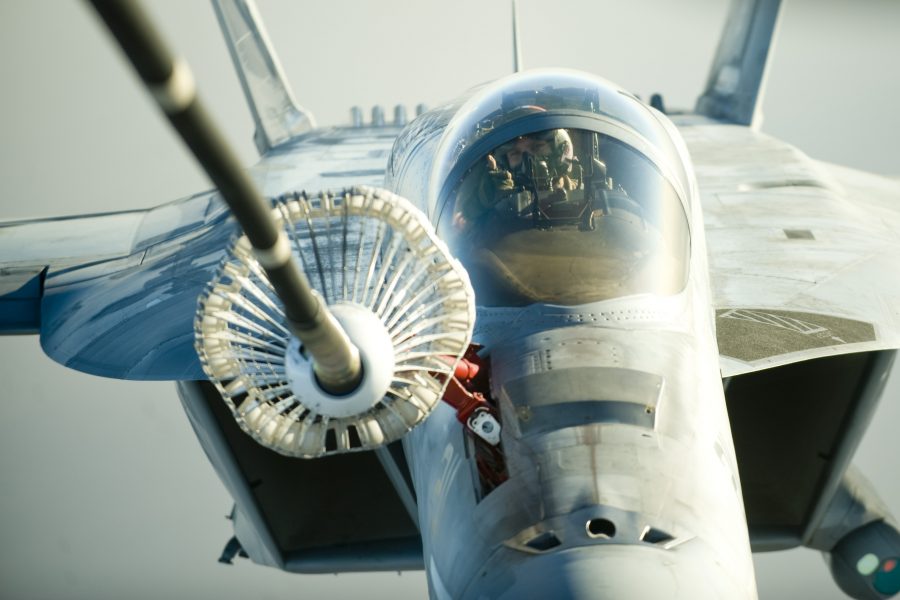The Air Force is extending its feasibility study into the use of privately owned aerial refueling tankers after an initial report determined further research is needed to understand legal and financial challenges.
Last week, the Air Force delivered a Commercial Air Refueling Report to the House Armed Services Committee, which Air Force Secretary Barbara Barrett reviewed and then asked for 60 more days to further study the issue, Air Mobility Command said in a statement.
“AMC is actively exploring a commercial contract air refueling option to complement our current tanker fleet for use in low-threat, non-combat environments such as testing and limited training,” AMC said. “After reviewing the initial report, the Secretary of the Air Force directed Air Mobility Command to further study the potential use of commercial aerial refueling services to meet requirements before moving towards initiating any contractual arrangements with service providers.”
The initial report found that contractor-operated boom-type tankers face legal, regulatory, and financial challenges, which include receiving approvals from the Federal Aviation Administration, determining how the tankers will be employed, and how the service will address the cost issues.
AMC, in briefings to interested companies, said there are about 25,000 non-supported flying hours in test and training that could be met by private companies. Potential contracts would cover about 5,000 hours annually, totaling about 1,100 sorties. Companies would need to have one aircraft capable of both boom and hose and drogue refueling, with an average flying pace of about three sorties per day.
The original schedule, according to a December 2019 briefing, would be to have initial operational capability within 12 months of contract award. Within about 24 months, the service wants a company to be certified on its top priority refueling aircraft—F-15s, F-16s, F/A-18s, B-1s, and B-52s.
AMC planned for a solicitation in June, though there’s no hard timeline or cost figure attached to the plan yet.
